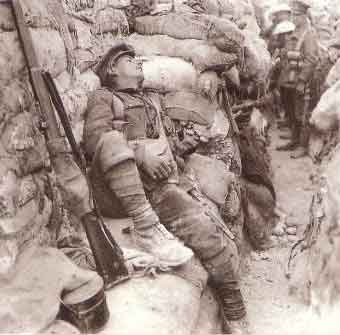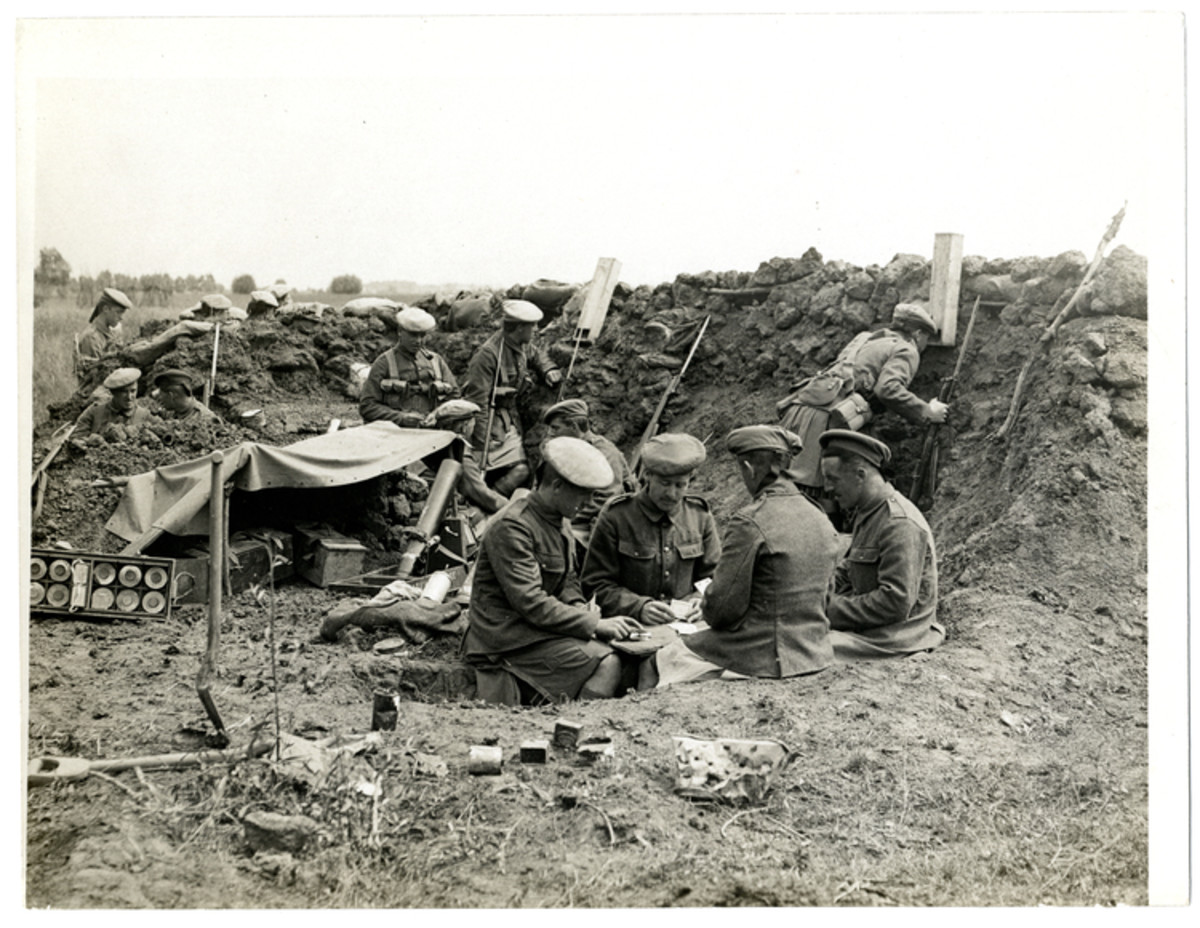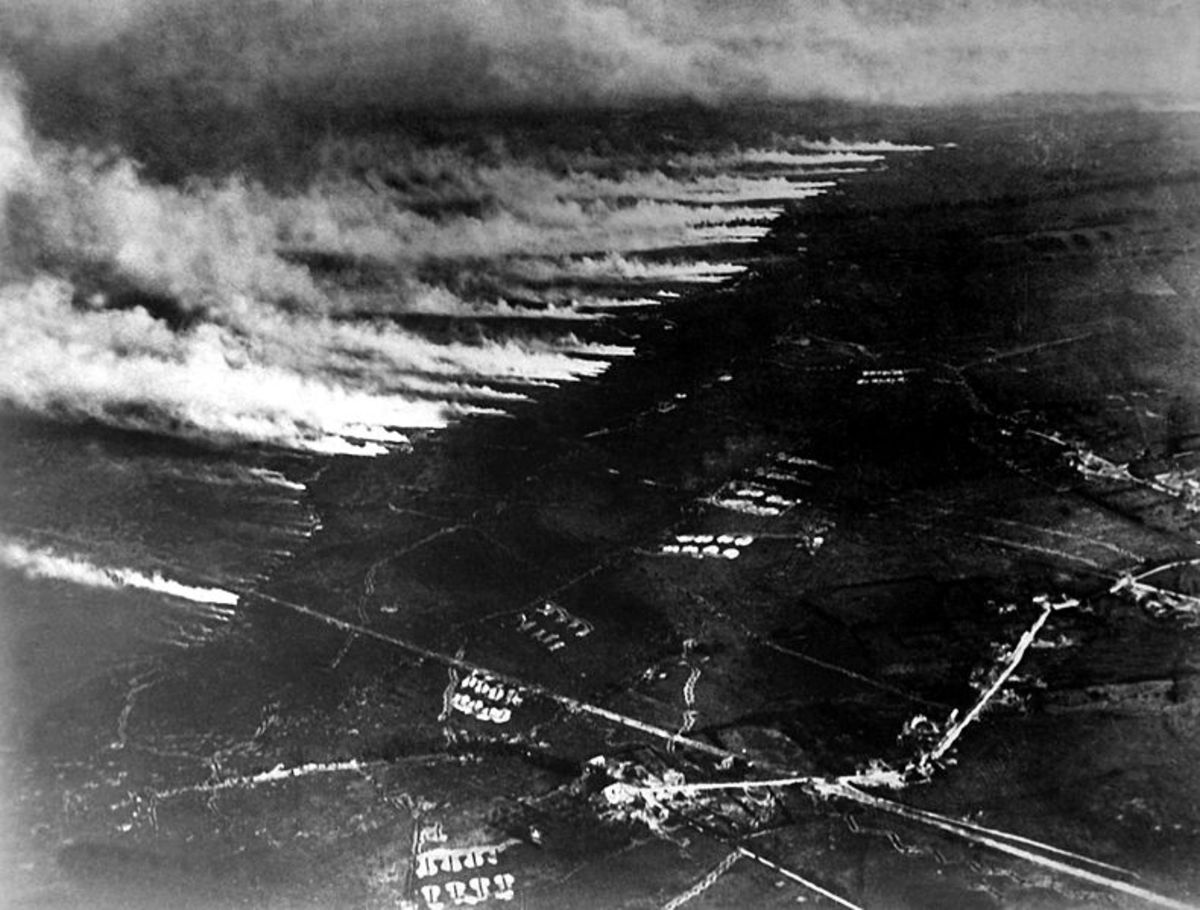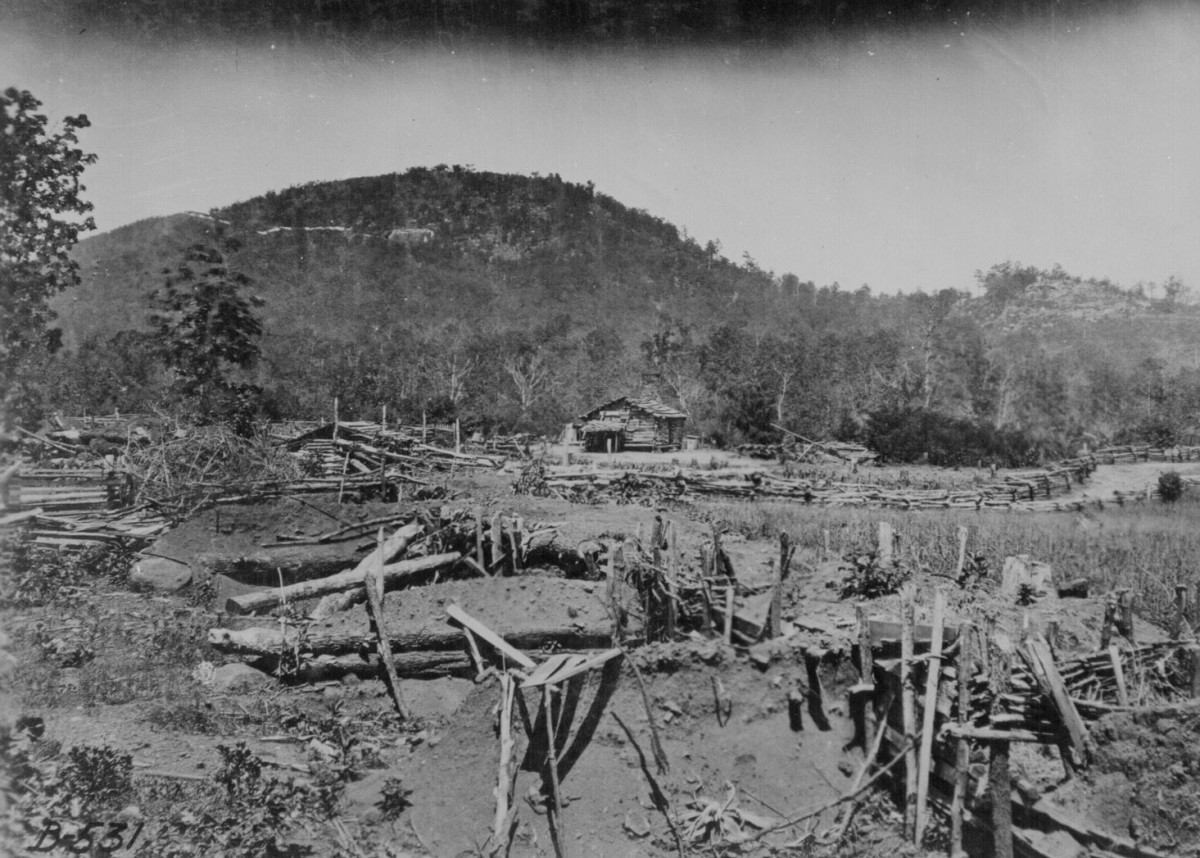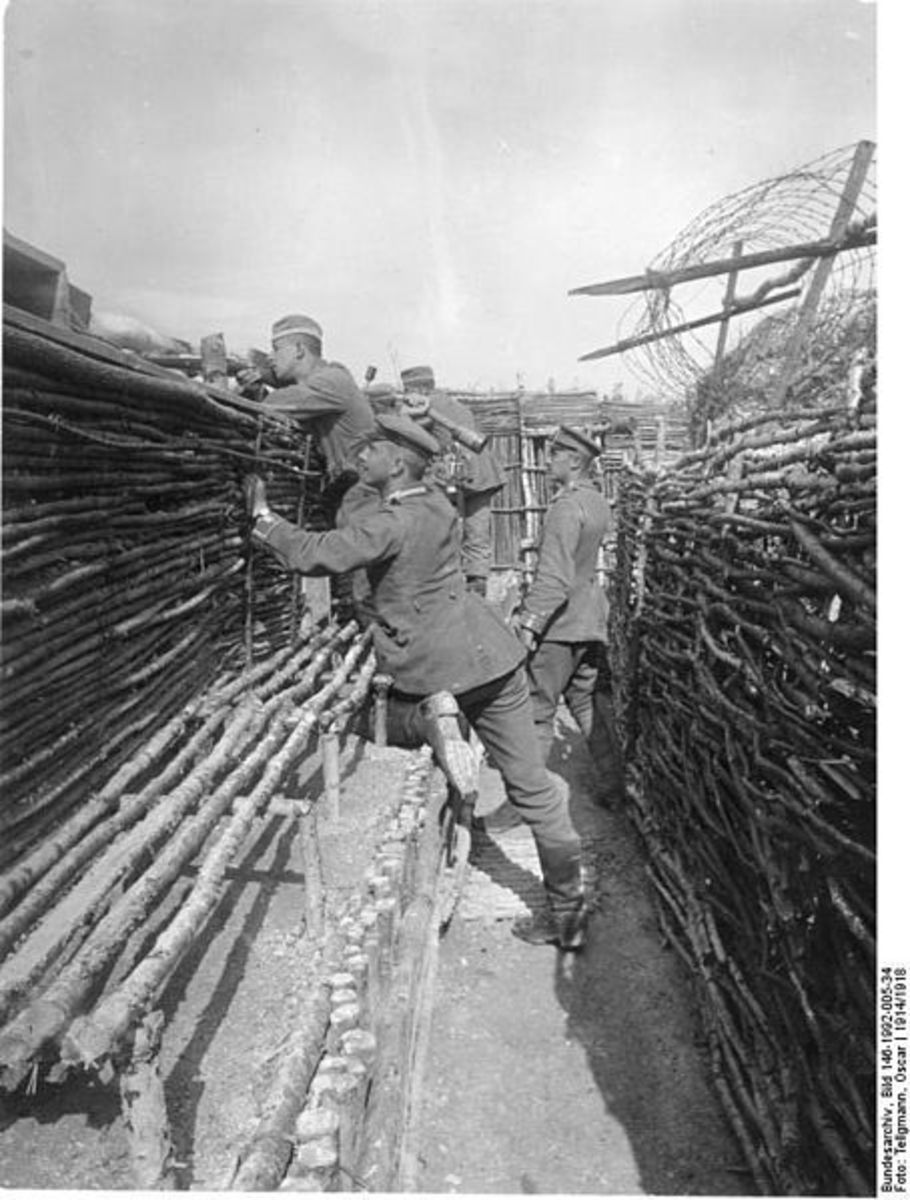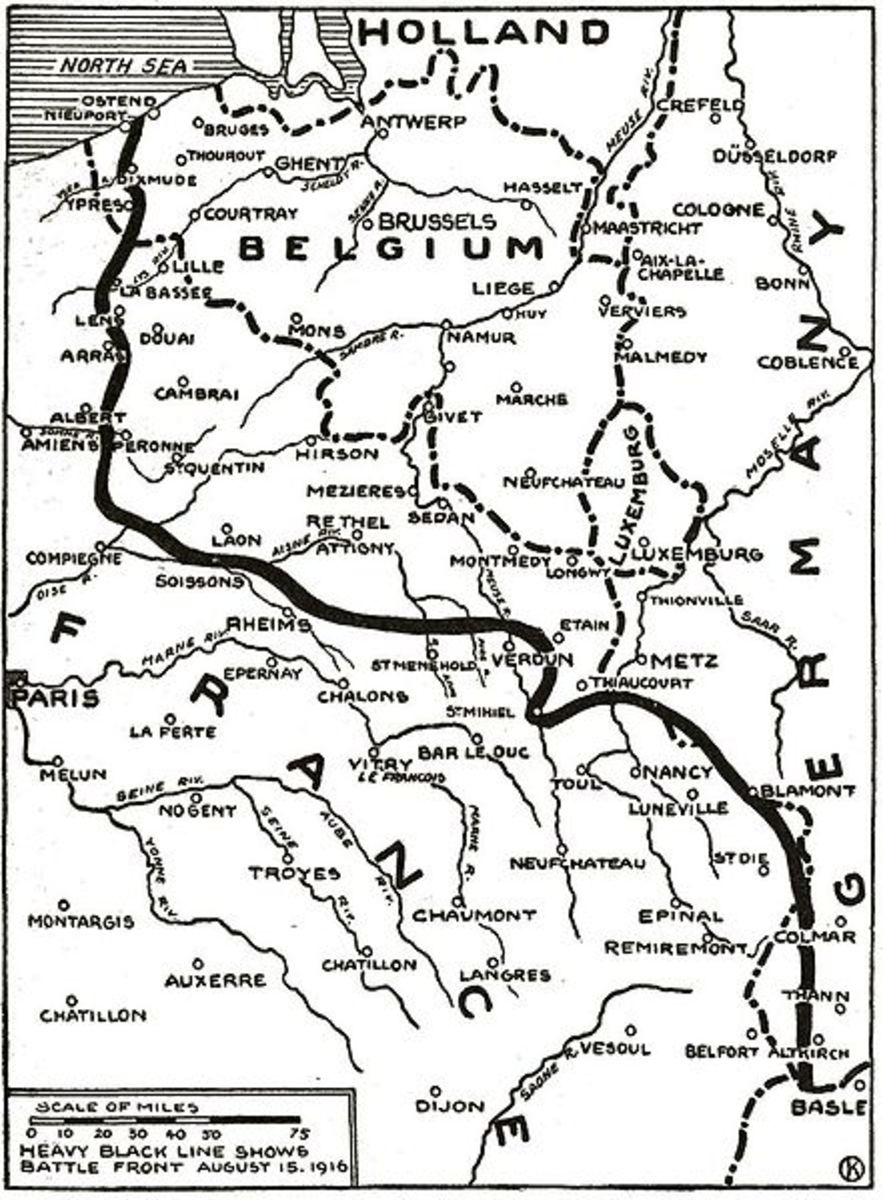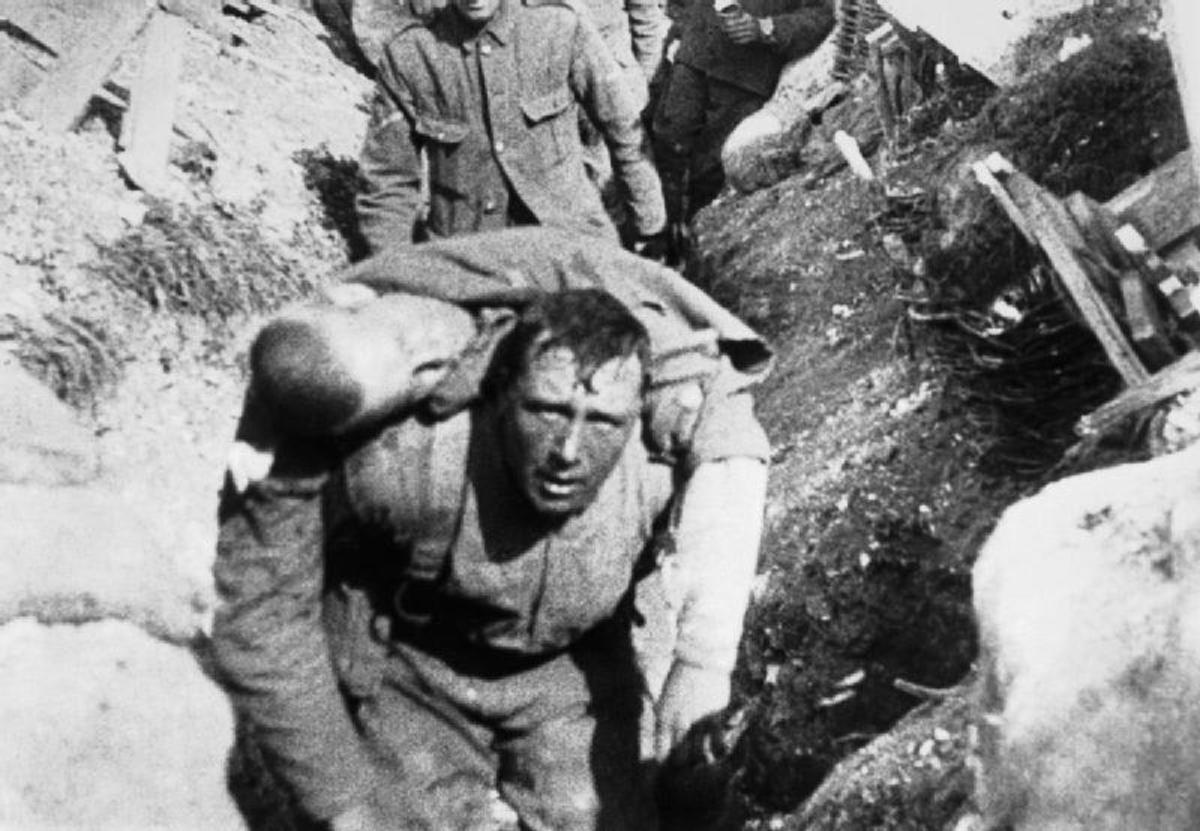- HubPages»
- Education and Science»
- History & Archaeology»
- History of the Modern Era»
- Twentieth Century History
Daily Routine in WWI Trenches
Life in the Trenches during WWI
For the common soldier, trench life was a horrible mix of mundane and terrifying. Soldiers would be stationed in trenches for a long time.
Daily life went like this:
-
Soldiers couldn’t shower for weeks
-
Shell Shock, the constant firing of artillery shells, could drive stable men literally insane
-
There was terrible food, and high levels of boredom.
- Danger: If you stuck your head out of the trench too far you could have it blown off by snipers. Many people died there first day in the trench this way.
- Soldiers were supposed to stay in the front line for only a week.
-
You were supposed to be cycled through positions of battle. You’d start with the front line in the trench, and then stay for a bit in support near the trenches. After that you’d move to reserve and finally rest.
-
However, some soldiers spent much longer in the frontlines then others, and people in rest could’ve been moved to the front line at any moment.
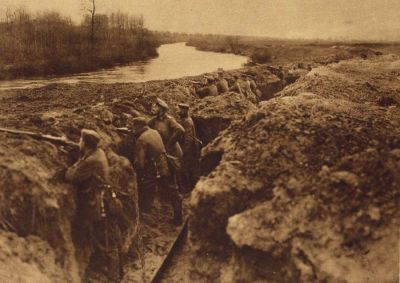
Trench life was a horrible mix of mundane and terrifying.
Chores During WWI Trench Life
-
Some men repaired damage to the trench that shells caused.
-
Some collected mail
-
Sentries kept watch using periscopes
-
To cope soldiers sang, formed friendships, and sometimes became very religious
-
Some tried to wash. However, there wasn’t enough water for washing and toilets.
-
At night, they listened at listening posts for the enemy
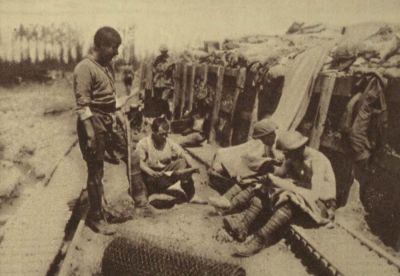
Schedule During Trench Life
Time
| Description
| |
|---|---|---|
Stand To (“Morning Hate”)
| 30 min. to an hour after dawn
| Each man would get a rifle and look for enemy soldiers. They did this because it was logical that if the other side was going to attack, they would do it in the dust or dawn.
|
Rifle Cleaning/Inspection
| After Stand-To
| Soldiers would clean their rifle equipment and then the officers would inspect it.
|
Breakfast Truce
| Morning
| An unofficial truce might be made between both sides for breakfast. This usually didn’t last long, when officers found this out they would end it.
|
Chores
| Day
| There were a variety of daily chores a solider could get in the trenches. They might have had to refill the stack of sandbags around the trench, or repair the duckboards. It was very important to try to pump water out of the trenches, especially because it could case trench foot.
|
Personal Life
| Evening
| fter the chores soldiers would write letters to families and loved ones, play cards, get meals ready or try a sleep.
|
Stand To
| 30 min. to an hour before dusk
| Done twice a day
|
Nightlife
| Night
| Supplies, water and food would be retrieved.
|
Sentry Duty
| Night (Up to 2 hrs. a shift)
| Some men would have to go on sentry duty, which meant they would guard the trench from the enemy. If you fell asleep while doing this, the punishment was death by firing squad!
|
Patrolling No-Man’s Land
| Night
| Still other would patrol no-man’s land. They would set or repair the barbed wire fences, or set up listening stations to try and get information. If patrollers from both sides meet, they either would have to run back to their camp or do hand-to-hand combat. Firing a gun was too dangerous.
|
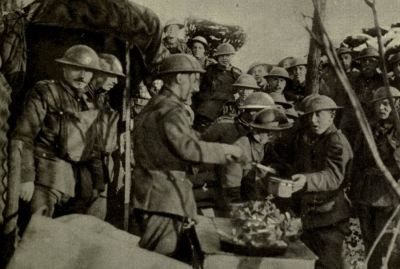
To cope they sang, formed friendships, and sometimes became very religious.
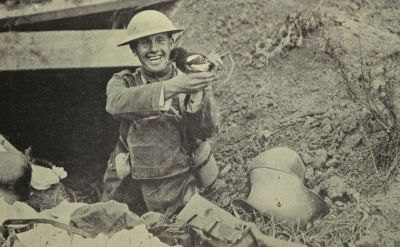
In summary, daily life in the trenches during WWI was stressful, monotonous, and dangerous. Little happened, but the threat was always there. Many soldiers ended up with PTSD due to their time in the trenches.
